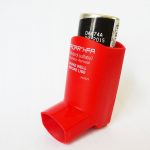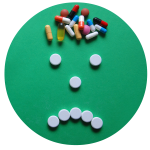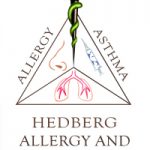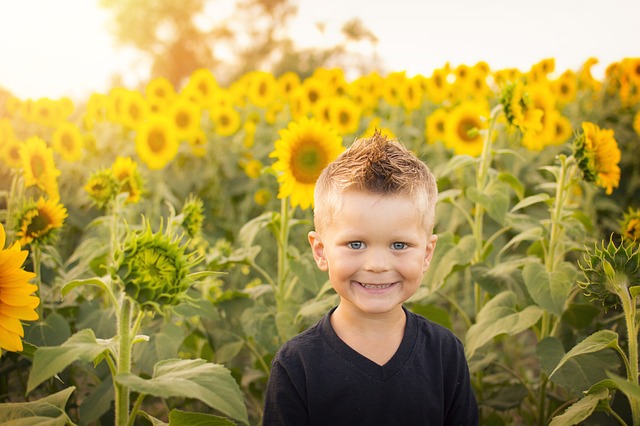
Question: Because I have severe seasonal allergies (as do many people in my family), I know that my 4-year-old son will likely need treatment soon, too. His symptoms are getting worse. Are allergy shots safe for small children? What age do kids typically start shots? If my child has an intense fear of needles, how can I help prepare him for what may be several years of regular allergy shots?
Response by Dr. Adesua O. Wejinya, FACAAI, FAAAAI of Hedberg Allergy & Asthma Center
Allergic Rhinitis, also known as hay fever, is a disease where our immune systems are overreacting to allergens around us. These allergens include pet dander, dust, mold, and pollen, such as trees, grasses and weeds. This 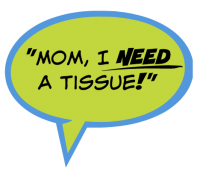 reaction results in inflammation of our nasal passages and the signs and symptoms we typically see are a runny, itchy, stuffy nose (congestion) and sometimes similar symptoms in eyes as well as sneezing. These symptoms can result in sinus infections and in some patients, who are susceptible, it can trigger asthma flares.
reaction results in inflammation of our nasal passages and the signs and symptoms we typically see are a runny, itchy, stuffy nose (congestion) and sometimes similar symptoms in eyes as well as sneezing. These symptoms can result in sinus infections and in some patients, who are susceptible, it can trigger asthma flares.
When we as allergists discuss allergy shots, we are specifically referring to a treatment that is also known as allergen immunotherapy. This is a course of treatment lasting for 4 to 5 years that specifically addresses the underlying problem – the fact that the body is incorrectly recognizing airborne organic proteins (pollens, mold spores, animal dander) as harmful and is overreacting by forming proteins called IgE antibodies to attempt to eradicate them. Each person who suffers from allergies has a unique set of airborne proteins to which they react.
Allergy shots work by slowly “teaching” the body to no longer recognize certain proteins (pollens, animal dander, etc.) as allergens — a process also described as desensitization. We start with an extremely low dose of allergen and slowly build up over the course of approximately one year. Once you reach a specified “maintenance” dose, we continue this for 3-4 additional years, occasionally longer. After initiation of allergy shots, most patients find they have decreasing allergy symptoms and gradually require less allergy medications. Allergy shots are the only long-term way to bring symptoms under control in patients who have significant allergic disease.
Allergy shots are safe for small children. The age in which shots may be recommended to young children is done on a case-by-case basis. Children typically start shots around age 4 or sooner when medications are not adequately controlling their allergies. Typically, most children, even with a needle phobia, overcome this because the needle used for allergy injections is TINY (it’s smaller than the flu shot!). The injection is also very quick and is given frequently in the initial stages of treatment. It’s actually easier to get used to an injection that is administered weekly rather than one obtained less frequently.
I usually recommend parents emphasize the benefits of allergy shots such as less symptoms, less medications and more time outdoors and with pets without being miserable. Over time, most children in our practice do get used to getting their shots, even those who were initially concerned about pain. I’ve even asked some children about if the shots are painful during follow-up visits and the majority of the children don’t complain about significant pain during the injection.
Research has also shown that allergy shots can prevent children who have allergic rhinitis from getting asthma. Treating the underlying cause of allergies in children can help prevent other sinus problems, improve quality of life, and help prevent your child from missing school due to allergy and asthma symptoms. An allergist is a great resource to further discuss any concerns about the allergy shot process and get better educated about immunotherapy.
Adesua O. Wejinya, MD, FACAAI, FAAAAI is one of the Board Certified Allergists practicing at Hedberg Allergy & Asthma Center, with locations in Rogers and Fayetteville. The clinic diagnoses and treats asthma, allergic rhinitis and other diseases of the upper and lower respiratory tract, drug and insect hypersensitivity, latex allergy, hives, allergic skin disease, recurrent infections and congenital immunologic deficiencies. Hedberg Allergy & Asthma Center was ranked No. 1 in the category of “Best Allergy Clinic” in the most recent Mom-Approved Awards, as voted by mothers in Northwest Arkansas. Click here to visit the clinic’s website or call 479-464-8887 (Rogers) or 479-301-8887 (Fayetteville) for more info.


